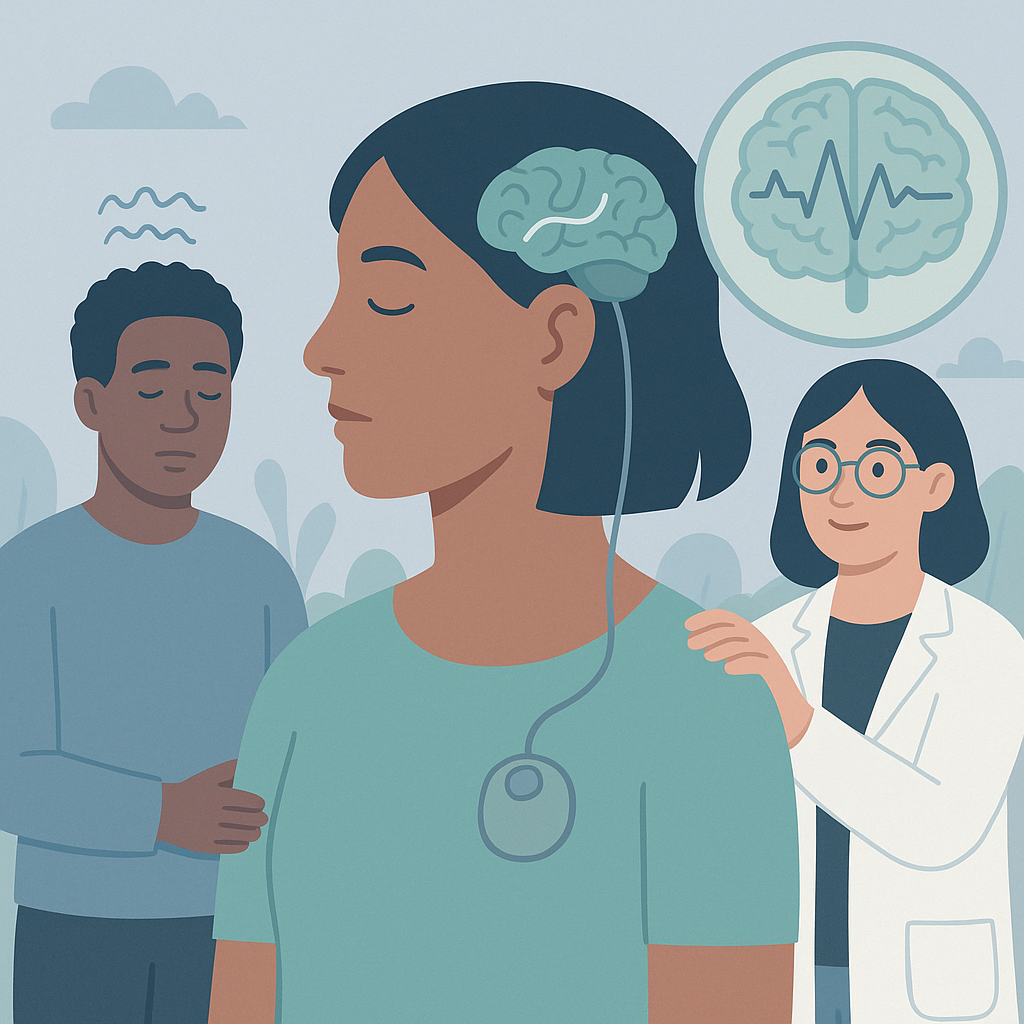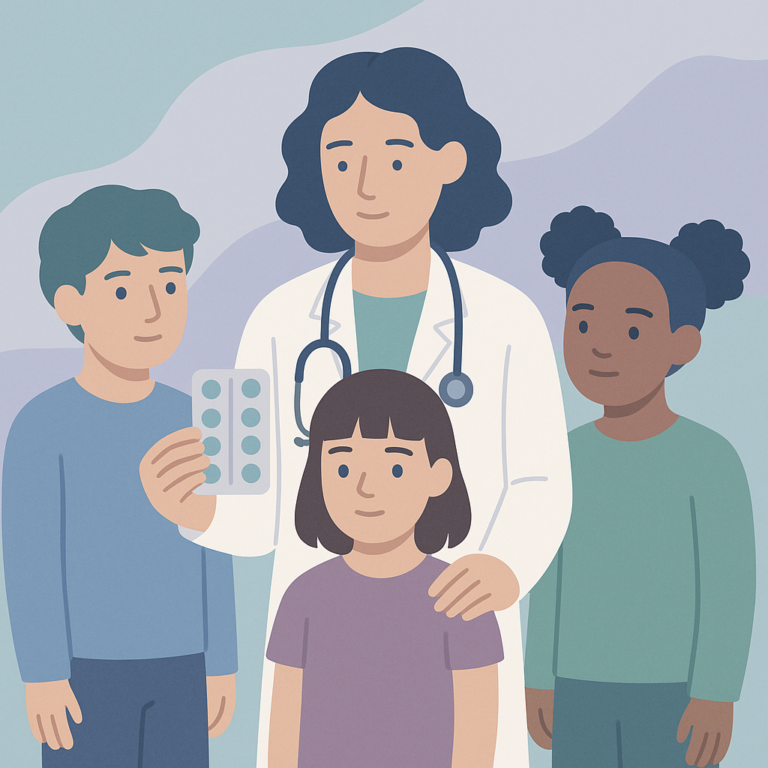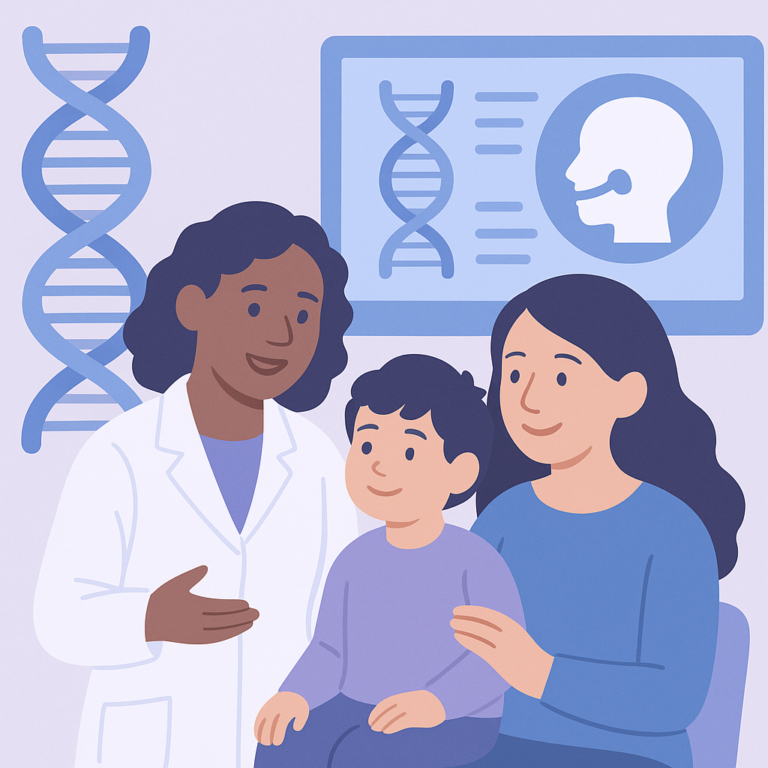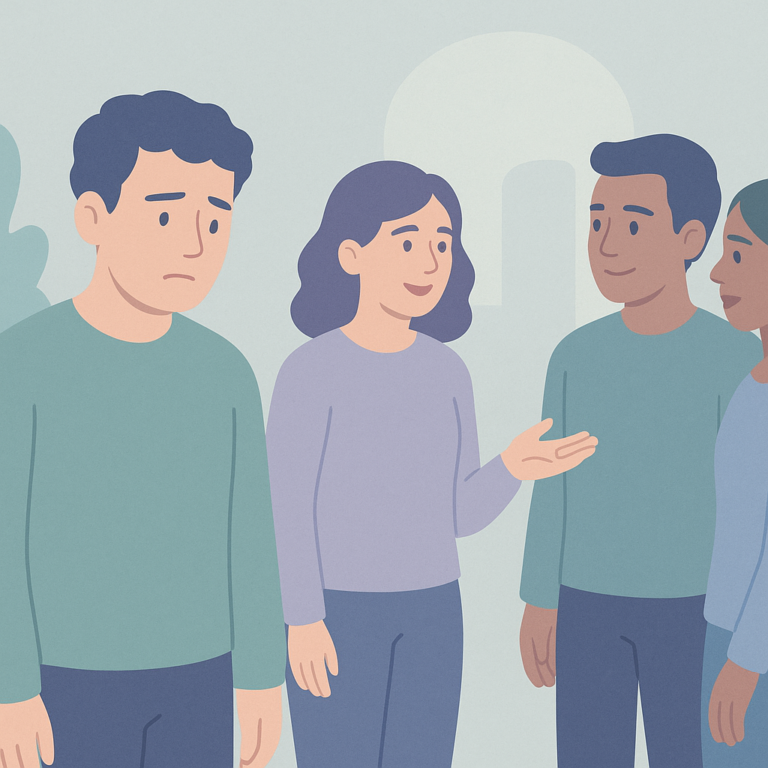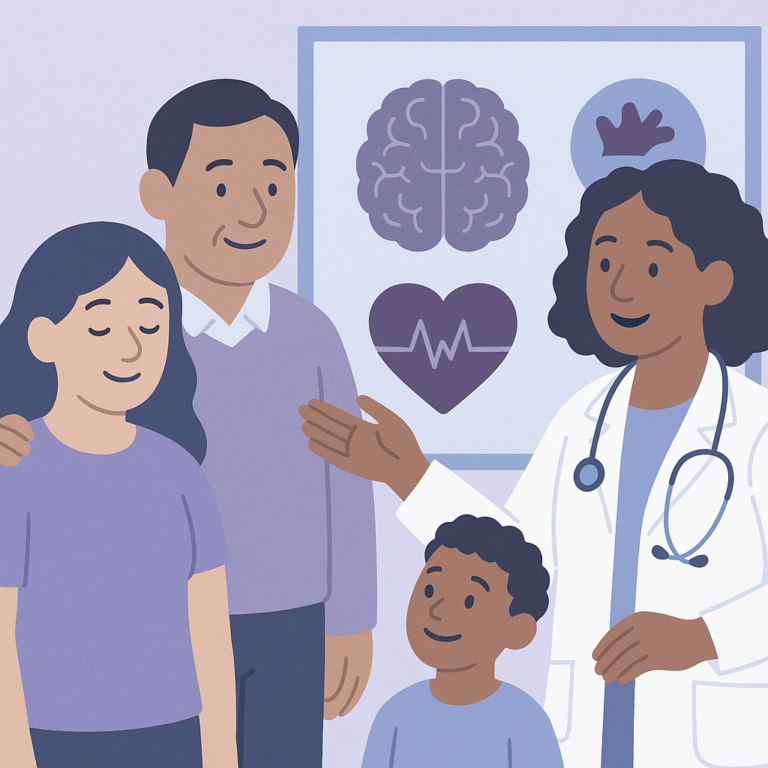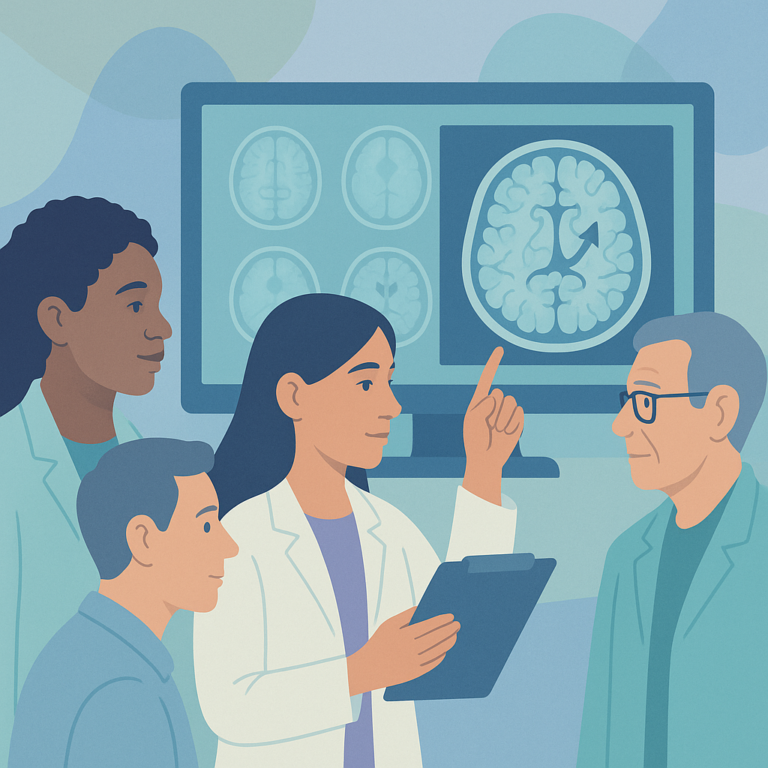Deep Brain Stimulation (DBS) for Epilepsy: What to Knowy
Summary
Researchers studied the effects of Deep Brain Stimulation (DBS) on patients with intractable epilepsy, which means their seizures could not be controlled by medication. The study involved 17 patients who received DBS at a medical center between 2018 and 2023. The researchers looked at various factors, including the patients' demographics, types of epilepsy, previous treatments, and their mental health before and after the DBS procedure.
The main finding was that 59% of the patients experienced a significant reduction in seizures, defined as a decrease of 50% or more. Interestingly, those who responded well to the treatment were found to be using more anti-seizure medications compared to those who did not respond. However, the study did not find a clear link between psychosocial factors, like depression or employment status, and the success of the DBS treatment, although responders did show a slight increase in depression scores.
This research is important because it suggests that DBS can be an effective option for some patients with difficult-to-treat epilepsy. However, it is essential to note that the study had a small number of participants and was observational, meaning it cannot definitively prove cause and effect. More extensive studies are needed to understand the long-term effects of DBS and its relationship with psychosocial factors.
Related reading
- Key Factors Affecting Seizure Control in Pregnant Women with Epilepsy
- New Hope for Children with Hard-to-Treat Epilepsy: Everolimus Shows Promise
- New Study Explores Ketamine for Treating Severe Seizures in Kids
- Vitamin D3 May Help Improve Brain Activity in Boys with Epilepsy
- New Research Explores Probiotics for Children with Drug-Resistant Epilepsy
Free: Seizure First Aid Quick Guide (PDF)
Plus one plain-language weekly digest of new epilepsy research.
Unsubscribe anytime. No medical advice.